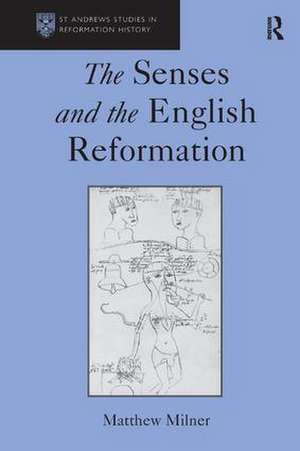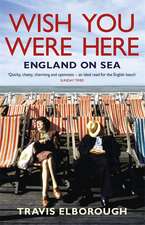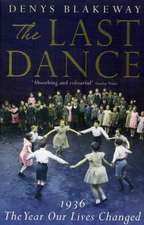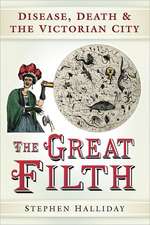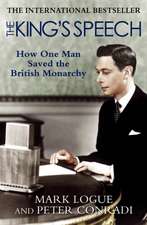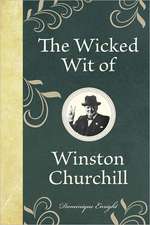The Senses and the English Reformation: St Andrews Studies in Reformation History
Autor Matthew Milneren Limba Engleză Hardback – 18 mar 2011
Din seria St Andrews Studies in Reformation History
- 15%
 Preț: 695.67 lei
Preț: 695.67 lei -
 Preț: 311.51 lei
Preț: 311.51 lei -
 Preț: 296.35 lei
Preț: 296.35 lei -
 Preț: 313.38 lei
Preț: 313.38 lei - 23%
 Preț: 942.83 lei
Preț: 942.83 lei - 30%
 Preț: 772.07 lei
Preț: 772.07 lei - 18%
 Preț: 1054.71 lei
Preț: 1054.71 lei - 18%
 Preț: 1000.27 lei
Preț: 1000.27 lei - 28%
 Preț: 880.05 lei
Preț: 880.05 lei - 30%
 Preț: 768.30 lei
Preț: 768.30 lei - 17%
 Preț: 240.92 lei
Preț: 240.92 lei - 26%
 Preț: 822.34 lei
Preț: 822.34 lei - 18%
 Preț: 1000.27 lei
Preț: 1000.27 lei - 30%
 Preț: 783.79 lei
Preț: 783.79 lei - 31%
 Preț: 766.66 lei
Preț: 766.66 lei - 18%
 Preț: 1000.27 lei
Preț: 1000.27 lei - 28%
 Preț: 498.88 lei
Preț: 498.88 lei - 18%
 Preț: 1053.16 lei
Preț: 1053.16 lei - 31%
 Preț: 767.88 lei
Preț: 767.88 lei - 18%
 Preț: 1054.71 lei
Preț: 1054.71 lei - 31%
 Preț: 764.87 lei
Preț: 764.87 lei - 18%
 Preț: 1062.62 lei
Preț: 1062.62 lei - 18%
 Preț: 1005.01 lei
Preț: 1005.01 lei - 30%
 Preț: 768.82 lei
Preț: 768.82 lei - 31%
 Preț: 765.19 lei
Preț: 765.19 lei - 18%
 Preț: 1062.62 lei
Preț: 1062.62 lei - 31%
 Preț: 764.20 lei
Preț: 764.20 lei - 30%
 Preț: 769.55 lei
Preț: 769.55 lei - 25%
 Preț: 768.30 lei
Preț: 768.30 lei - 30%
 Preț: 770.33 lei
Preț: 770.33 lei -
 Preț: 349.80 lei
Preț: 349.80 lei - 31%
 Preț: 765.84 lei
Preț: 765.84 lei - 31%
 Preț: 765.84 lei
Preț: 765.84 lei - 18%
 Preț: 1004.20 lei
Preț: 1004.20 lei - 27%
 Preț: 496.94 lei
Preț: 496.94 lei - 18%
 Preț: 1001.84 lei
Preț: 1001.84 lei - 30%
 Preț: 770.62 lei
Preț: 770.62 lei - 28%
 Preț: 739.65 lei
Preț: 739.65 lei - 30%
 Preț: 772.76 lei
Preț: 772.76 lei - 31%
 Preț: 767.47 lei
Preț: 767.47 lei - 18%
 Preț: 1063.89 lei
Preț: 1063.89 lei - 18%
 Preț: 1057.09 lei
Preț: 1057.09 lei - 31%
 Preț: 765.01 lei
Preț: 765.01 lei - 31%
 Preț: 764.20 lei
Preț: 764.20 lei - 18%
 Preț: 1005.04 lei
Preț: 1005.04 lei - 30%
 Preț: 768.46 lei
Preț: 768.46 lei - 31%
 Preț: 763.39 lei
Preț: 763.39 lei -
 Preț: 376.48 lei
Preț: 376.48 lei
Preț: 1125.74 lei
Preț vechi: 1372.84 lei
-18% Nou
Puncte Express: 1689
Preț estimativ în valută:
215.48€ • 234.14$ • 181.12£
215.48€ • 234.14$ • 181.12£
Carte tipărită la comandă
Livrare economică 21 aprilie-05 mai
Preluare comenzi: 021 569.72.76
Specificații
ISBN-13: 9780754666424
ISBN-10: 0754666425
Pagini: 430
Dimensiuni: 156 x 234 x 24 mm
Greutate: 0.93 kg
Ediția:New.
Editura: Taylor & Francis
Colecția Routledge
Seria St Andrews Studies in Reformation History
Locul publicării:Oxford, United Kingdom
ISBN-10: 0754666425
Pagini: 430
Dimensiuni: 156 x 234 x 24 mm
Greutate: 0.93 kg
Ediția:New.
Editura: Taylor & Francis
Colecția Routledge
Seria St Andrews Studies in Reformation History
Locul publicării:Oxford, United Kingdom
Cuprins
Contents: Introduction: towards thinking about sensation in Tudor religion; The senses and sensing in 15th-century England; Religiosity and sensing in pre-Reformation England; The senses and worship: provision for liturgy in late-medieval England; Sensing pre-Reformation English liturgy; Sensory landscapes of Reformation England; Perception, polity, and gostly thynges in Reformation England; Sensible reformation in mid-Tudor England; Sensing and worship in Elizabethan England; Epilogue; Bibliography; Index.
Recenzii
'Milner's work is as thorough as it is fascinating...The Senses and the English Reformation is a magisterial work that will open more avenues of research in this crucial area regarding the role of the senses in experiencing the divine via liturgical worship.' Trinity Journal 'The Senses and the English Reformation is valuable because it opens up the human senses in worship as a new realm for study. Perception itself was one of the great disputed features of the Reformation in England.' Renaissance Quarterly 'This stimulating addition to the historiography deepens our appreciation of the implications of Reformation and its far-reaching nature.' Reformation 'With extraordinary learning, Matthew Milner examines philosophical views of the senses from the high Middle Ages through the sixteenth century... Those concerned with the texture of religious practice in the crucial centuries of pre- and post-Reformation England will prize the learning and scope of this book.' Catholic Historical Review 'Matthew Milner’s The Senses and the English Reformation is an erudite and well-researched study that describes the history of the senses and sensuality in the pre-Reformation and post-Reformation church in England... an essential study of the history of the Reformation from an adept and careful scholar.' Sixteenth Century Studies 'Milner’s ambitious book highlights potential sensory developments in stimulating and thought-provoking terms. This approach does not yet revise the Reformation, but it does valuably extend our interpretive framework, and calls for clearer definition of the intellective (selection and meaning) and the sensory (physical and spiritual).' American Historical Review 'The book adopts an exemplary strategy. It tells us all about the late medieval devotional landscape and its reliance on the senses and then explores how things changed in England in the Wake of the Reformation... The volume opens up many promising avenues of future research.' Religious S
Notă biografică
Dr Matthew Milner is a Postdoctoral Fellow in Early Modern Studies and Digital Humanities at McGill University, Canada
Descriere
Challenging the assumption that medieval Catholicism was overly sensual, while Protestantism rejected any element of worship appealing to the eye, ear, or nose, this study asks fundamental questions about the relationship between religion and the senses. The book begins with an examination of pre-Reformation beliefs and practices, establishing intellectual views on the senses in fifteenth-century England. Having established the parameters for the role of sense before the Reformation, the second half of the book mirrors these concerns in the post-1520 world, looking at how, and to what degree, the relationship between religious practices and sensation changed as a result of the coming of Protestantism.
